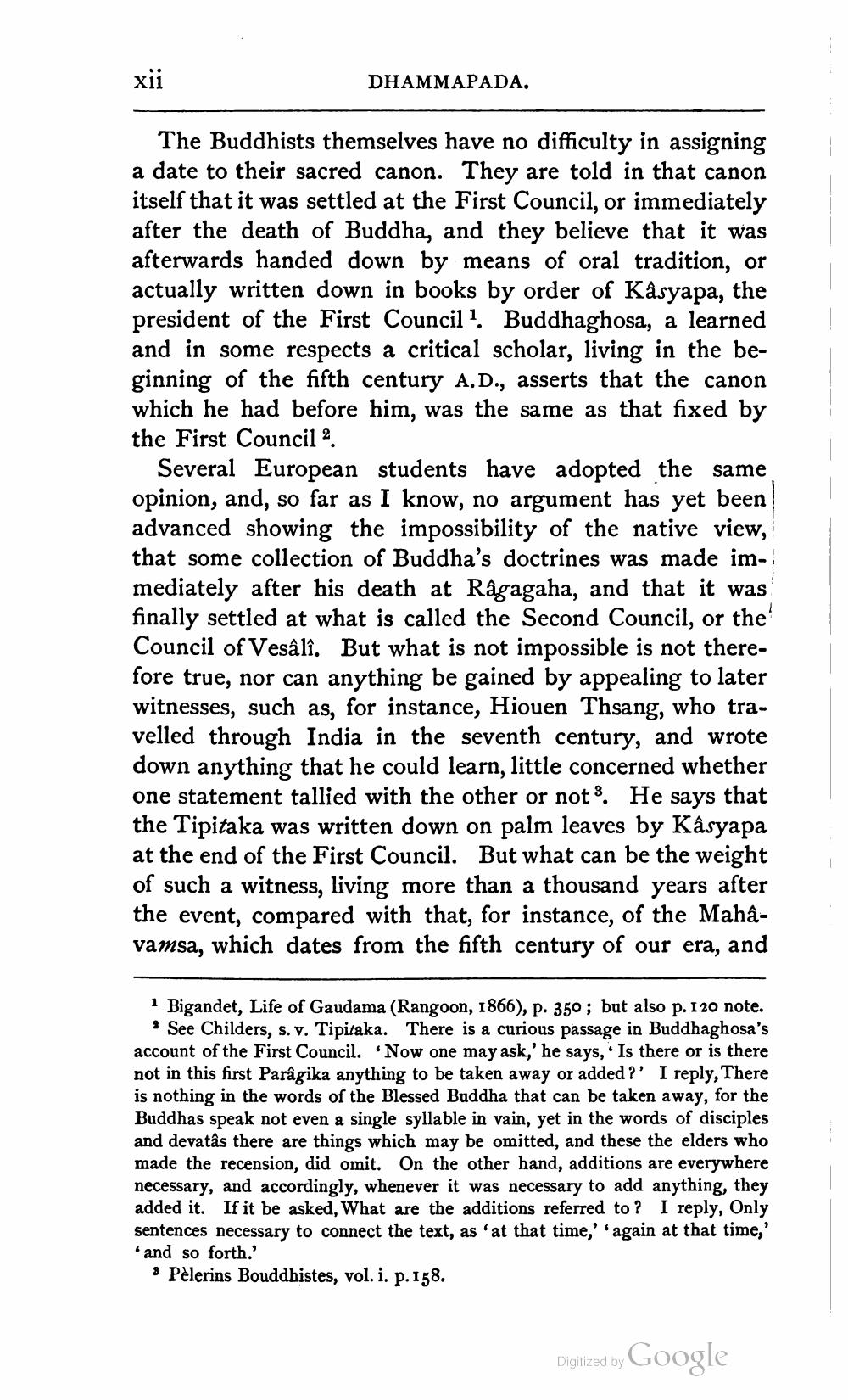________________
DHAMMAPADA.
The Buddhists themselves have no difficulty in assigning a date to their sacred canon. They are told in that canon itself that it was settled at the First Council, or immediately after the death of Buddha, and they believe that it was afterwards handed down by means of oral tradition, or actually written down in books by order of Kasyapa, the president of the First Council. Buddhaghosa, a learned and in some respects a critical scholar, living in the beginning of the fifth century A.D., asserts that the canon which he had before him, was the same as that fixed by the First Council 2.
Several European students have adopted the same opinion, and, so far as I know, no argument has yet been advanced showing the impossibility of the native view, that some collection of Buddha's doctrines was made immediately after his death at Râgagaha, and that it was finally settled at what is called the Second Council, or the Council of Vesâlî. But what is not impossible is not therefore true, nor can anything be gained by appealing to later witnesses, such as, for instance, Hiouen Thsang, who travelled through India in the seventh century, and wrote down anything that he could learn, little concerned whether one statement tallied with the other or not. He says that the Tipitaka was written down on palm leaves by Kâsyapa at the end of the First Council. But what can be the weight of such a witness, living more than a thousand years after the event, compared with that, for instance, of the Mahâvamsa, which dates from the fifth century of our era, and
Bigandet, Life of Gaudama (Rangoon, 1866), p. 350 ; but also p. 120 note. . See Childers, s. v. Tipitaka. There is a curious passage in Buddhaghosa's account of the First Council. Now one may ask,' he says, Is there or is there not in this first Parâgika anything to be taken away or added ?' I reply, There is nothing in the words of the Blessed Buddha that can be taken away, for the Buddhas speak not even a single syllable in vain, yet in the words of disciples and devatâs there are things which may be omitted, and these the elders who made the recension, did omit. On the other hand, additions are everywhere necessary, and accordingly, whenever it was necessary to add anything, they added it. If it be asked, What are the additions referred to ? I reply, Only sentences necessary to connect the text, as 'at that time,' again at that time,' and so forth.' s Pèlerins Bouddhistes, vol. i. p. 158.
Digitized by Google




